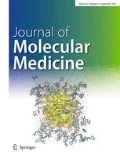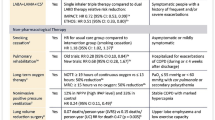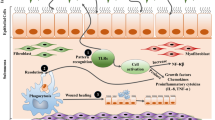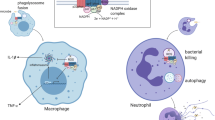Abstract
COPD patients have an increased susceptibility to bacterial airway infections that can induce exacerbations. In response to infections, circulating monocytes become recruited to the infected tissue and secrete cytokines. We hypothesized that this cytokine response is reduced in COPD. Cultured peripheral blood monocytes of never smokers (NS) and smokers without (S) and with COPD (3 study populations, n = 36–37) were stimulated with extracts of Haemophilus influenzae, Staphylococcus aureus, or Streptococcus pneumoniae or with four different pathogen-associated molecular patterns (PAMPs). Four cytokines and 9 PAMP-related signaling molecules were measured and compared between the groups. Granulocyte-macrophage-colony-stimulating-factor responses to all stimulants were reduced in S and COPD compared to NS. Tumor-necrosis-factor-α responses to all bacterial extracts, peptidoglycan, and lipopolysaccharide were reduced in S and/or COPD. Interleukin-10 responses to S. aureus and lipoteichoic acid were increased in COPD. Correlations to pack-years and lung function were found. The peptidoglycan-receptor NOD2 and the mRNA of the lipopolysaccharide-receptor TLR4 were reduced in S and COPD. Cytokine responses of monocytes to bacteria are suppressed by smoking and in COPD possibly due to NOD2 and TLR4 reduction and/or interleukin-10 increase. This might help to explain the increased susceptibility to bacterial infections. These systemic molecular pathologies might be targets for therapeutic strategies to prevent infection-induced exacerbations.
Key messages
-
COPD subjects have an increased susceptibility to bacterial infections.
-
This implies defects in the immune response to bacteria and is critical for disease progression.
-
The cytokine response of monocytes to bacteria is reduced in COPD.
-
This might be due to a reduced NOD2 and TLR4 and an increased IL-10 expression.
-
This can explain the increased susceptibility to infections and help to identify drug targets.





Similar content being viewed by others
References
Bagaitkar J, Demuth DR, Scott DA (2008) Tobacco use increases susceptibility to bacterial infection. Tob Induc Dis 4:12
Nuorti JP, Butler JC, Farley MM, Harrison LH, McGeer A, Kolczak MS, Breiman RF (2000) Cigarette smoking and invasive pneumococcal disease. Active Bacterial Core Surveillance Team. N Engl J Med 342:681–689
Eguíluz-Gracia I, Schultz HH, Sikkeland LI, Danilova E, Holm AM, Pronk CJ, Agace WW, Iversen M, Andersen C, Jahnsen FL, Baekkevold ES (2016) Long-term persistence of human donor alveolar macrophages in lung transplant recipients. Thorax 71:1006–1011
Geissmann F, Auffray C, Palframan R, Wirrig C, Ciocca A, Campisi L, Narni-Mancinelli E, Lauvau G (2008) Blood monocytes: distinct subsets, how they relate to dendritic cells, and their possible roles in the regulation of T-cell responses. Immunol Cell Biol 86:398–408
Hume DA, Ross IL, Himes SR, Sasmono RT, Wells CA, Ravasi T (2002) The mononuclear phagocyte system revisited. J Leukoc Biol 72:621–627
Chung KF, Adcock IM (2008) Multifaceted mechanisms in COPD: inflammation, immunity, and tissue repair and destruction. Eur Respir J 31:1334–1356
Takanashi S, Hasegawa Y, Kanehira Y, Yamamoto K, Fujimoto K, Satoh K, Okamura K (1999) Interleukin-10 level in sputum is reduced in bronchial asthma, COPD and in smokers. Eur Respir J 14:309–314
de Waal Malefyt R, Abrams J, Bennett B, Figdor CG, de Vries JE (1991) Interleukin 10(IL-10) inhibits cytokine synthesis by human monocytes: an autoregulatory role of IL-10 produced by monocytes. J Exp Med 174:1209–1220
Kirschning CJ, Bauer S (2001) Toll-like receptors: cellular signal transducers forexogenous molecular patterns causing immune responses. Int J Med Microbiol 291:251–260
Nasher F, Heller M, Hathaway LJ (2018) Streptococcus pneumoniae proteins AmiA, AliA, and AliB bind peptides found in ribosomal proteins of other bacterial species. Front Microbiol 8:2688
Barnes PJ (2004) Alveolar macrophages as orchestrators of COPD. COPD. 1:59–70
Frankenberger M, Eder C, Hofer TP, Heimbeck I, Skokann K, Kassner G, Weber N, Möller W, Ziegler-Heitbrock L (2011) Chemokine expression by small sputum macrophages in COPD. Mol Med 17:762–770
Knobloch J, Schild K, Jungck D, Urban K, Müller K, Schweda EK, Rupp J, Koch A (2011) The T-helper cell type 1 immune response to gram-negative bacterial infections is impaired in COPD. Am J Respir Crit Care Med 183:204–214
Knobloch J, Chikosi SJ, Yanik S, Rupp J, Jungck D, Koch A (2016) A systemic defect in toll-like receptor 4 signaling increases lipopolysaccharide-induced suppression of IL-2-dependent T-cell proliferation in COPD. Am J Phys Lung Cell Mol Phys 310:L24–L39
Koch A, Gaczkowski M, Sturton G, Staib P, Schinköthe T, Klein E, Rubbert A, Bacon K, Wassermann K, Erdmann E (2007) Modification of surface antigens in blood CD8+ T-lymphocytes in COPD: effects of smoking. Eur Respir J 29:42–50
Aldonyte R, Jansson L, Piitulainen E, Janciauskiene S (2003) Circulating monocytes from healthy individuals and COPD patients. Respir Res 4:11
Ravi AK, Plumb J, Gaskell R, Mason S, Broome CS, Booth G, Catley M, Vestbo J, Singh D (2017) COPD monocytes demonstrate impaired migratory ability. Respir Res 18:90
Wedzicha JA, Seemungal TA (2007) COPD exacerbations: defining their cause and prevention. Lancet 370:786–796
Pasqua F, Biscione G, Crigna G, Cazzola M (2008) Prulifloxacin in the treatment of acute exacerbations of COPD in cigarette smokers. Ther Adv Respir Dis 2:209–214
Koch A, Knobloch J, Dammhayn C, Raidl M, Ruppert A, Hag H, Rottlaender D, Müller K, Erdmann E (2007) Effect of bacterial endotoxin LPS on expression of INF-gamma and IL-5 in T-lymphocytes from asthmatics. Clin Immunol 125:194–204
Mat Z, Grensemann B, Yakin Y, Knobloch J, Koch A (2012) Effect of lipoteichoic acid on IL-2 and IL-5 release from T lymphocytes in asthma and COPD. Int Immunopharmacol 13:284–291
Drömann D, Rupp J, Rohmann K, Osbahr S, Ulmer AJ, Marwitz S, Röschmann K, Abdullah M, Schultz H, Vollmer E, Zabel P, Dalhoff K, Goldmann T (2010) The TGF-beta-pseudoreceptor BAMBI is strongly expressed in COPD lungs and regulated by nontypeable Haemophilus influenzae. Respir Res 11:67
Knobloch J, Hag H, Jungck D, Urban K, Koch A (2011) Resveratrol impairs the release of steroid-resistant cytokines from bacterial endotoxin-exposed alveolar macrophages in chronic obstructive pulmonary disease. Basic Clin Pharmacol Toxicol 109:138–143
Sethi S, Murphy TF (2008) Infection in the pathogenesis and course of chronic obstructive pulmonary disease. N Engl J Med 27:2355–2365
Agusti A, Faner R (2012) Systemic inflammation and comorbidities in chronic obstructive pulmonary disease. Proc Am Thorac 9:43–46
Decramer M, Janssens W, Miravitlles M (2012) Chronic obstructive pulmonary disease. Lancet 379:1341–1351
Shi Y, Liu CH, Roberts AI, Das J, Xu G, Ren G, Zhang Y, Zhang L, Yuan ZR, Tan HS, Das G, Devadas S (2006) Granulocyte-macrophage colony-stimulating factor (GM-CSF) and T-cell responses: what we do and don’t know. Cell Res 16:126–133
Ushach I, Zlotnik A (2016) Biological role of granulocyte macrophage colony-stimulating factor (GM-CSF) and macrophage colony-stimulating factor (M-CSF) on cells of the myeloid lineage. J Leukoc Biol 100:481–489
Zelová H, Hošek J (2013) TNF-α signalling and inflammation: interactions between old acquaintances. Inflamm Res 62:641–651
Metcalfe HJ, Lea S, Hughes D, Khalaf R, Abbott-Banner K, Singh D (2014) Effects of cigarette smoke on toll-like receptor (TLR) activation of chronic obstructive pulmonary disease (COPD) macrophages. Clin Exp Immunol 176:461–472
Lea SR, Reynolds SL, Kaur M, Simpson KD, Hall SR, Hessel EM, Singh D (2018) The effects of repeated toll-like receptors 2 and 4 stimulation in COPD alveolar macrophages. Int J Chron Obstruct Pulmon Dis 13:771–780
Kang JY, Nan X, Jin MS, Youn SJ, Ryu YH, Mah S, Han SH, Lee H, Paik SG, Lee JO (2009) Recognition of lipopeptide patterns by toll-like receptor 2-toll-like receptor 6 heterodimer. Immunity 31:873–884
Poltorak A, He X, Smirnova I, Liu MY, Van Huffel C, Du X, Birdwell D, Alejos E, Silva M, Galanos C, Freudenberg M, Ricciardi-Castagnoli P, Layton B, Beutler B (1998) Defective LPS signaling in C3H/HeJ and C57BL/10ScCr mice: mutations in Tlr4 gene. Science 282:2085–2088
Chamaillard M, Hashimoto M, Horie Y, Masumoto J, Qiu S, Saab L, Ogura Y, Kawasaki A, Fukase K, Kusumoto S, Valvano MA, Foster SJ, Mak TW, Nuñez G, Inohara N (2003) An essential role for NOD1 in host recognition of bacterial peptidoglycan containing diaminopimelic acid. Nat Immunol 4:702–707
Girardin SE, Boneca IG, Viala J, Chamaillard M, Labigne A, Thomas G, Philpott DJ, Sansonetti PJ (2003) Nod2 is a general sensor of peptidoglycan through muramyl dipeptide (MDP) detection. J Biol Chem 278:8869–8872
Brosbøl-Ravnborg A, Hvas CL, Agnholt J, Dahlerup JF, Vind I, Till A, Rosenstiel P, Höllsberg P (2009) Toll-like receptor-induced granulocyte-macrophage colony-stimulating factor secretion is impaired in Crohn’s disease by nucleotide oligomerization domain 2-dependent and -independent pathways. Clin Exp Immunol 155:487–495
Acknowledgements
We thank Sandra Körber, Carmen Meinig, and Katja Urban for excellent technical assistance.
Funding
This study was supported by the FoRUM Program of the Ruhr University Bochum, Germany (RUB, F716R-2011 to J.K. and M.P.).
Author information
Authors and Affiliations
Corresponding author
Ethics declarations
The study was approved by the Ethics Committees of the University of Cologne, Germany (02-004) and of the University of Bochum, Germany (4257-12, 4772-13) and all patients gave written consent.
Conflict of interest
Dr. Jungck reports payment for lectures from Novartis as well as travel support from Actelion, Boehringer Ingelheim, Teva, Sanofi, and Roche; Dr. Knobloch reports personal fees from AstraZeneca, personal fees from Teva, personal fees from Novartis, personal fees from Actelion Pharmaceuticals, and personal fees from Boehringer Ingelheim, outside the submitted work; Dr. Kronsbein reports personal fees from AstraZeneca, personal fees from Boehringer Ingelheim, and personal fees from Novartis, outside the submitted work; Dr. Peters reports personal fees from Biotest AG, personal fees from Protectimmun GmbH, grants from Dr. Georg E. und Marianne Kosing-Stiftung, grants from Georgius Agricola Stiftung Ruhr, and grants from Phenox GmbH, outside the submitted work; Dr. Bendella, Mr. Bülthoff, Dr. Bürger, Dr. Giannakis, Mrs. Jamal Jameel, Dr. Koch, Dr. Panek, Dr. Rupp, Mrs. Struck, and Dr. Yanik have nothing to disclose.
Additional information
Publisher’s note
Springer Nature remains neutral with regard to jurisdictional claims in published maps and institutional affiliations.
Electronic supplementary material
ESM 1
(DOCX 27.3 kb)
Rights and permissions
About this article
Cite this article
Knobloch, J., Panek, S., Yanik, S. et al. The monocyte-dependent immune response to bacteria is suppressed in smoking-induced COPD. J Mol Med 97, 817–828 (2019). https://doi.org/10.1007/s00109-019-01778-w
Received:
Revised:
Accepted:
Published:
Issue Date:
DOI: https://doi.org/10.1007/s00109-019-01778-w




